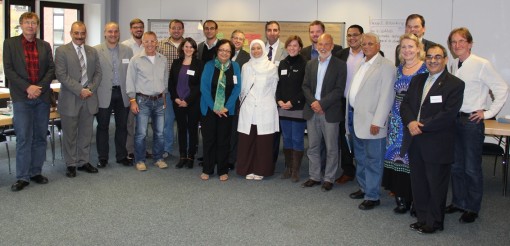How can we make the German-Arab Master’s programmes even more attractive? What can be done to better support alumni just starting off their careers? These were just some of the questions discussed by representatives from both Germany and Arab nations during a meeting held mid-September at the Gustav-Stresemann-Institut (GSI) in Bonn. The President of Helwan University in Cairo was among the attending.
The meeting was organised by the DAAD, the Deutsche Gesellschaft für internationale Zusammenarbeit (GIZ) and Germany’s Federal Ministry for Economic Cooperation and Development (BMZ). Over the course of the two-day event, academic programme directors and coordinators mapped out the next two years together with representatives from the DAAD, GIZ and the BMZ.
“The participants started out in working groups discussing alumni work as well as issues such as focus areas and the overall sustainability of the courses,” said programme coordinator Andreas Böhler from the DAAD. The second portion of the meeting was spent discussing how to implement the ideas floated in the working groups. “By the time they left, each of the courses of study had a two-year action plan in hand.”
The meeting, which is held annually, gives participants the opportunity to build their networks. Next year’s key topics have not been decided yet. “The courses have been asked to submit ideas and topics that interest them,” explains Andreas Böhler. “We were asked, for example, to offer a workshop on project management in 2014.” The DAAD is already planning a meeting with the courses’ alumni representatives next year to map out and develop the alumni programme.
The German-Arab degree programmes receive funding as well as academic support from the DAAD, BMZ and the GIZ. Students enrolled in the programmes spend a portion of their studies in both Germany and the Arab partner country, and receive a double degree upon successful completion. Currently participating in the programme are Cologne University of Applied Sciences, Phillipps-Universität Marburg, Ludwigsburg University of Education, University of Kassel and the University of Stuttgart, as well as universities in Lebanon, Egypt and Jordan.






